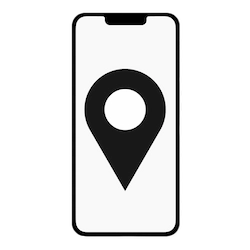What to Do After a Car Accident Not Your Fault?
Navigating the Aftermath of a Car Accident That Wasn’t Your Fault.
Car accidents can shake anyone to their core, particularly when you’re not at fault. The steps ahead, filled with insurance dealings, potential legal issues, and recovery, can appear overwhelming. However, being equipped with the proper knowledge can ease this stress. Here’s a guide to navigating the aftermath when the accident wasn’t due to your negligence.
- Prioritize SafetySecure the Scene: If you can, move your vehicle to a safer spot, away from the traffic flow. If this isn’t feasible, switch on your hazard lights.
- Check for Injuries: Before anything else, see if anyone’s hurt. If injuries are apparent, call 911 immediately.
Inform the Police
Regardless of the accident’s severity, obtaining a police report can be pivotal, especially when determining who was at fault. Remember to get a copy of this report for your records.
Document Every Detail
- Exchange Information: Collect the other driver’s name, contact details, insurance information, license plate, and vehicle description.
- Capture Photographic Evidence: Take pictures of the accident site, vehicle damage, any visible injuries, traffic signals, and any other relevant aspects.
- Gather Eyewitness Testimony: If witnesses are around, note their contact details and get their version of events.
Be Cautious in Your Discussions
While you should cooperate with everyone at the scene, be wary of the following:
- Accepting any blame.
- Guessing about what caused the accident.
- Discussing the specifics of your insurance policy.

Get Medical Attention
You might not feel hurt immediately after the crash, but some injuries can be subtle or delayed. It’s crucial to see a medical professional following the accident, as this ensures your health and establishes a medical record that may prove vital if you seek injury compensation.
Report to Your Insurance
Even if you believe you weren’t at fault, it’s wise to notify your insurance company about the accident to keep them informed and understand your coverage.
Keep Track of All Expenses
Keep a record of everything related to the accident — be it medical bills, car repair costs, or lost wages. This detailed account will be essential if you decide to claim compensation.
Consider Seeking Legal Counsel
Understanding legalities can be tricky. Consulting with an experienced attorney can provide the following:
- Insight into the potential strengths of your case.
- Guidance on interacting with insurance companies.
- Assistance throughout the claims procedure.
- Representation in court if the need arises.
Be Wary of Immediate Settlement Offers
Sometimes, the other party or their insurer might propose a quick settlement. Although the upfront money might seem appealing, it may not cover future accident-related costs. Consider such offers carefully and consult an attorney if you need more clarification.
Stay Aware of Legal Deadlines
Each state sets its deadline for filing a lawsuit post an accident. Familiarize yourself with these time limits to take advantage of all legal avenues.
Conclusion
Navigating the aftermath of a car accident where you aren’t at fault can be a challenge. However, a clear understanding of the steps can make the process smoother. Remember, you have rights and resources; professionals are ready to support and guide you. Stay informed, stay calm, and always prioritize your well-being.
